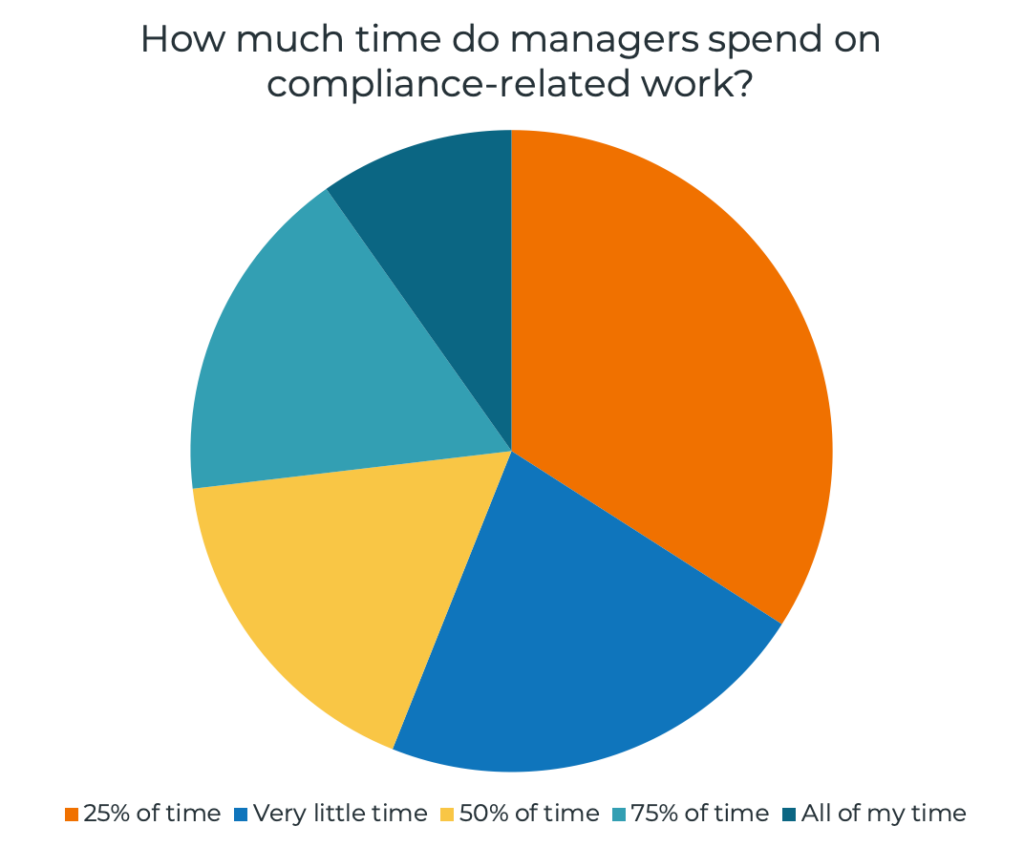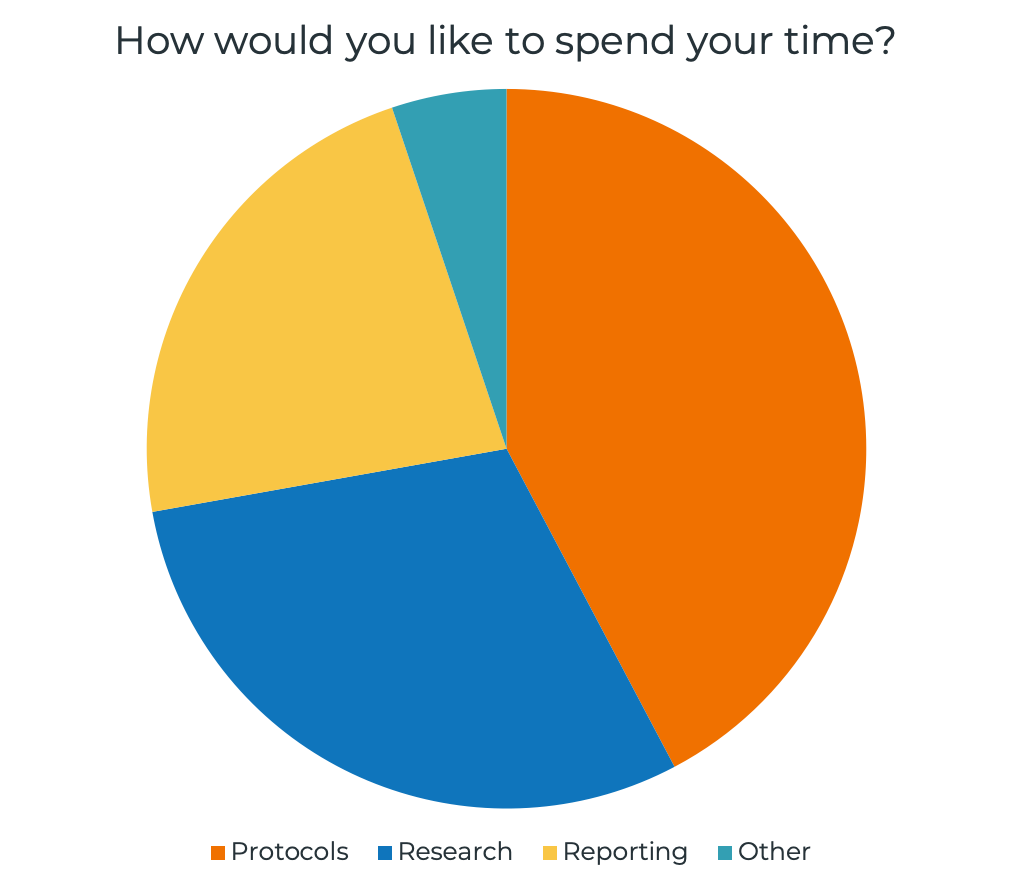We asked NYC management professionals three short, basic questions about how they handle compliance (plus a special bonus fourth – read on for more!). Responses came from different roles, portfolio sizes and types, and locations across the five boroughs, delivering some very interesting results.
With that said, here’s the hard numbers on how your fellow management professionals are dealing with compliance:
Here’s How Much Time Professionals Spend On Compliance Issues

Most respondents (34.1%) spend up to 25% of their time at work dealing with compliance, compared to other responsibilities.
25% of your day – 1 out of every 4 hours, or more than one full day per week – is a pretty significant chunk of time. Especially when you look at what those “other responsibilities” are: managing tenants and residents, leasing and marketing work, capital projects, vendor management, maintenance and inspections – just to name a few.
That’s compared to the following responses:
- 22% of responders spend “very little time” on compliance
- 17.1% of responders spend half of their time on compliance
- 17% of responders spend most of their time (75% or more) on compliance
So while there is a subset of folks who don’t focus on compliance, over a quarter of management professionals spend 50 – 75% of their time on compliance. That’s a substantial amount of working hours.
Finally, 9.8% of respondents spend all their time on compliance-related work.
While this group might be in the minority for this survey, compliance-focused roles within management organizations is a rapidly growing industry trend. Many teams are promoting or hiring full-time staff members to focus on local law preparation and responses portfolio-wide, centralizing and standardizing their compliance work. Some teams are also working with third-party compliance consultants, creating and executing strategy on how to handle everything from OATH-related violations to rolling out unit inspection plans.
Based on how this role is growing within the industry, don’t be surprised if there’s an increase in this response next year.
Of That Time, Here’s What They Focus On
When managers do spend time on compliance, here’s the work they’re mostly focused on:

- A whopping 50% of managers spend their time “reacting to new compliance issues as they arise”
- Compared to 25.6% of managers who spend time planning projects and policies to prevent new compliance issues
- 13.4% of professionals spend their time understanding how new regulations impact their portfolio
That’s half of property management professionals spending most of their time in defense mode – reacting to new infractions, hearings, and items as they’re coming due. That’s less time spent focusing on preventing compliance issues in the first place, or projects that improve the tenant/resident experience and overall team operations.
Here’s How They’d Like To Spend More Time
Still, there’s a definite gap between what professionals are doing with compliance work, and what they’d like to be doing. We asked managers what they’d rather be focusing on when it comes to compliance, and let them choose multiple responses:

- By a decisive majority, property management professionals in New York City want to spend more time “building out [their] team’s responses and protocols.”
- That’s followed by researching and understanding new regulations, not far from the third-place response of reporting on compliance-based challenges and successes.
We’re going to dive into this over the next few weeks, sharing tips on how management teams can build out their compliance plans (even when you have little or no time to spare).
[Bonus] Some Advice They’d Like To Pass On
Before we wrap up this summary post, here’s some great words of wisdom from your fellow property management professionals:
- “Documentation, documentation!” / “Document as much as you can so it’s easier to find information in the future in case of audits.”
- “Do not be intimidated by the challenge of a compliance related issue, no matter how daunting the task appears.”
- “Try and incorporate [compliance] tasks as best you can to your daily routine.”
- “Make sure everyone knows a little bit of everything so if someone leaves, another person can step in.”
- “Stay on top of it! Once you’re behind the 8 ball, it’s almost impossible to get out.”
Stay tuned for our follow-up posts on building out your protocols, diving deep into your team’s compliance management processes, and more.




